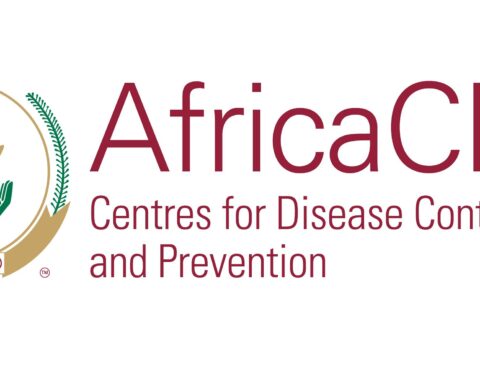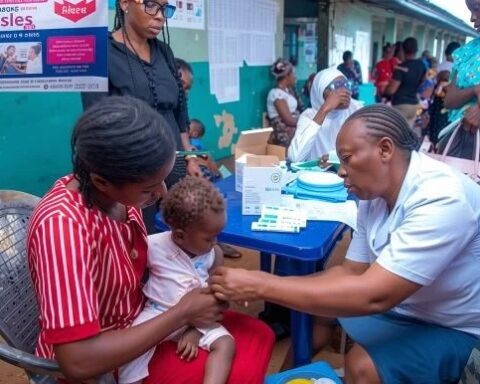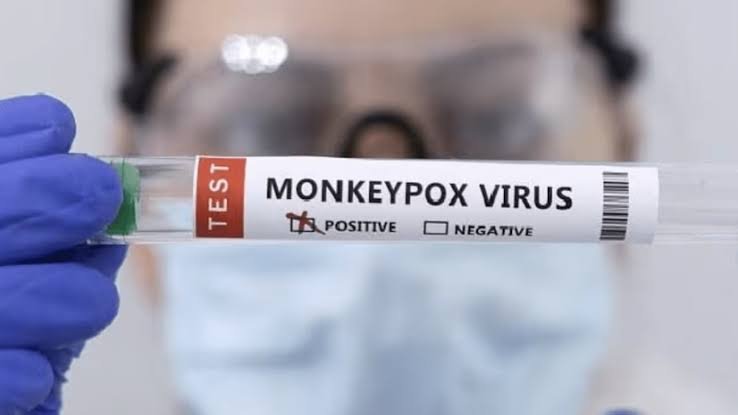From Left, Prof. Obiageli Nnodu Co-Principal Investigator PACTS and Director CESRTA, Prof. Imelda Bates, Principal Investigator PACTS, Prof. Rhoda Mundi Senior Special Assistant to the Vice-Chancellor University of Abuja and Justin Pulford, Capacity Strengthening Lead at a workshop in University of Abuja.
By Uche Bibilari
The Acting Vice-Chancellor, Yakubu Gowon University, Abuja, Prof. Patricia Lar, says building research capacity empowers the university with knowledge to create lasting impact in the fight against Sickle Cell Disease (SCD).
Lar, who was represented by her Senior Special Assistant on Academic Matters, Prof. Rhoda Mundi, said this during a workshop on Tuesday in Abuja
The workshop has its theme as, “Strengthening Institutional Research Capacity and Safeguarding”.
Yakubu Gowon University was formerly known as University of Abuja.
The workshop was organised by the National Centre of Excellence for Sickle Cell Disease Research and Training (CESRTA) in collaboration with Patient-Centered Sickle Cell Disease Management in Sub-Saharan African (PACTS), Liverpool School of Tropical Medicine (LSTM).
According to Lar, the workshop is aimed at strengthening capacity in advancing research excellence particularly in the fight against SCD.
“Sickle Cell Disease is a public health challenge, not only in Nigeria, but in the whole Sub-Saharan African.
“We at the university are very happy to collaborate with the National Centre of Excellence for Sickle Cell Disease Research and Training.
“We are proud to be associating with PACTS, generally building research capacity is not just a strategic necessity but it is an obligation.
“It empowers our institution to dig the knowledge to address and create lasting impact.
“The workshop will provide us with, not just knowledge, but actionable strategies and strengthen network within us”. She said.
She called on participants to utilise the opportunity of the workshop to share knowledge and build upon their collective knowledge to improve health purpose.
Prof. Obiageli Nnodu, Co-Principal Investigator and Director of CESRTA, said that the PACTS programme, which has over five million pounds grant tied to it, was a comprehensive implementation research study.
Nnodu said that the research was aimed at improving early detection, uptake of care and patient-centred management of SCD in Africa.
She said that the research project on SCD was being carried out by UniAbuja, University of Zambia Teaching Hospital, Kwame Nkrumah University of Science and Technology and Liverpool School of Tropical Medicine.
Nnodu said that research was a very important vehicle for national development, adding that it was good for African institutions to have the capacity to do research-strengthening through training.
“This capacity-strengthening workshop is a very important one in our university because over the past four years, we have had quite significant increase in the number of research grant that we are getting.
“We have the external and internal grants. In the external grant we have maybe less than 10 people, while in the internal grant we have increased from five to 55, ” she said.
She said that research could contribute to institutional and national development, adding that the needed priority ought to be accorded to research and its management in the university.
Prof. Imelda Bates, Principal Investigator, PACTS said that research should be a big project in a country such as Nigeria, and institutions need to key into it.
Bates said that Nigeria had the highest burden of SCD in the world, adding that the project was helping patients to access better care in the hospitals.
“Another part of this is to work with patients, communities, community leaders and patients families.
“We are having discussions with them about sickle cell disease care, and we are understanding from them all the problems that they have.
“We are also working with them to try and implement solutions that will be sustainable, feasible, low cost, that will really help them improve the way that they can get sickle cell care.
“Hopefully at the end of the day, that will improve their quality of life and also their life expectancy”, she said.
She said that PACTS was working hard on the project and other projects to ensure that everyone with sickle cell disease gets the care they need, no matter where they live or how much they have.
She said that families with sickle cell patients often tend to be the poorest families, adding that it affects their capacity to access healthcare.
“We know that a lot of the families with sickle cell disease have many children affected, and they often tend to be the poorest families.
“Because the health costs are so huge for all of these children and family members, they struggle to afford transport to come to clinics, to buy food, to go to school.
“We want to try and understand some solutions to some of these issues. We also know that many of these patients are turning initially to herbal remedies instead of going to the hospital.
“That, for some of them, is causing prolonged illness because they are not necessarily getting the correct treatment and they can not be followed up,” she said.
Bates said that part of the project was to work with the media to assist in clearing the misinformation and myths around SCD.
She said that these misinformation had created a lot of stigma for families of patients with SCD.
“Not only have they got probably several children with sickle cell disease, they are spending a lot of money and time on health care, but they are also being ostracised in communities.
“Children are getting bullied at school and we really want to try and address this stigma and miscommunication”, she said.
She called on the media to ensure that their reportage on SCD were accurate and based on evidence and research.
Follow us on all social media platforms @dailyquery for news and analyses around the globe.



























